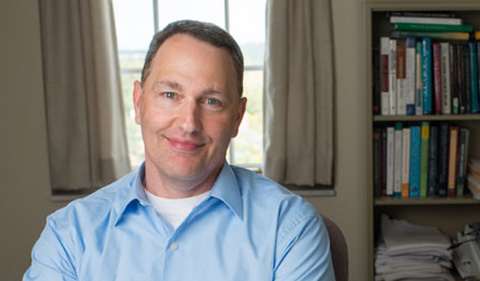The Economics Department is offering a new series of 11 courses aimed at the heart of current events, both social and economic.
All of these courses are at the 2000 level, and there are no prerequisites. These 3-credit courses are open to all Ohio University students.
ECON 2130 Examines Racial Discrimination, Crime and Punishment, and More
“So many times throughout my 30 years at Ohio University I have been asked what economics has to do with the topics I teach and write about such as addiction, racial discrimination, crime and punishment, and many others,” says Dr. Harold Winter, Professor and Chair of the Department of Economics. “My answer is always the same—economics has to do with everything!”
Among the 2000 level courses designed with that in mind is ECON 2130 Current Economic Problems, which probes controversial social issues pulled from the headlines.
Here’s a sample homework question: What do you think of the following news items?
- A man steals $1,200 worth of golf clubs and is sentenced to 25 years to life in prison in California.
- A group of African-American women sue U.S. Customs officials for being discriminated against when subjected to non-routine x-ray and strip searches at Chicago’s O’Hare Airport.
- The Affordable Care Act disallows insurance companies from refusing coverage for individuals with pre-existing adverse health conditions.
- Tobacco advertising was banned on television and radio by President Nixon on Jan. 1, 1971.
Using economic reasoning that examines the costs and benefits associated with these controversial social issues, Winter allows students to compare their own views on such issues to those of economists.
Offered in Fall 2021
ECON 2130: Current Economic Problems—Dr. Harold Winter will cover crime and punishment, racial discrimination, smoking and addiction, and health insurance, and other important social and economic problems that face society today.
ECON 2200: Introduction to Data Analysis using Python—Dr. Olga Standrityuk introduces the Python programming language as a way to apply economic analysis and prediction techniques to real-world scenarios—as students develop policy recommendations based on real-world data sets.
ECON 2400: International Trade Relations and Applications—Dr. Shamila Jayasuriya will look at world trade patterns and trade policies of both developed and developing nations—including tariffs and non-tariff trade barriers, industrial policies, and regional trade agreements.
ECON 2510: Global and Local Food Economies—Dr. Julia Paxton will take a look at the global and local food economy, including global food production and demand in the developing regions of the world, environmental degradation, food security, and local food distribution networks.




















Comments